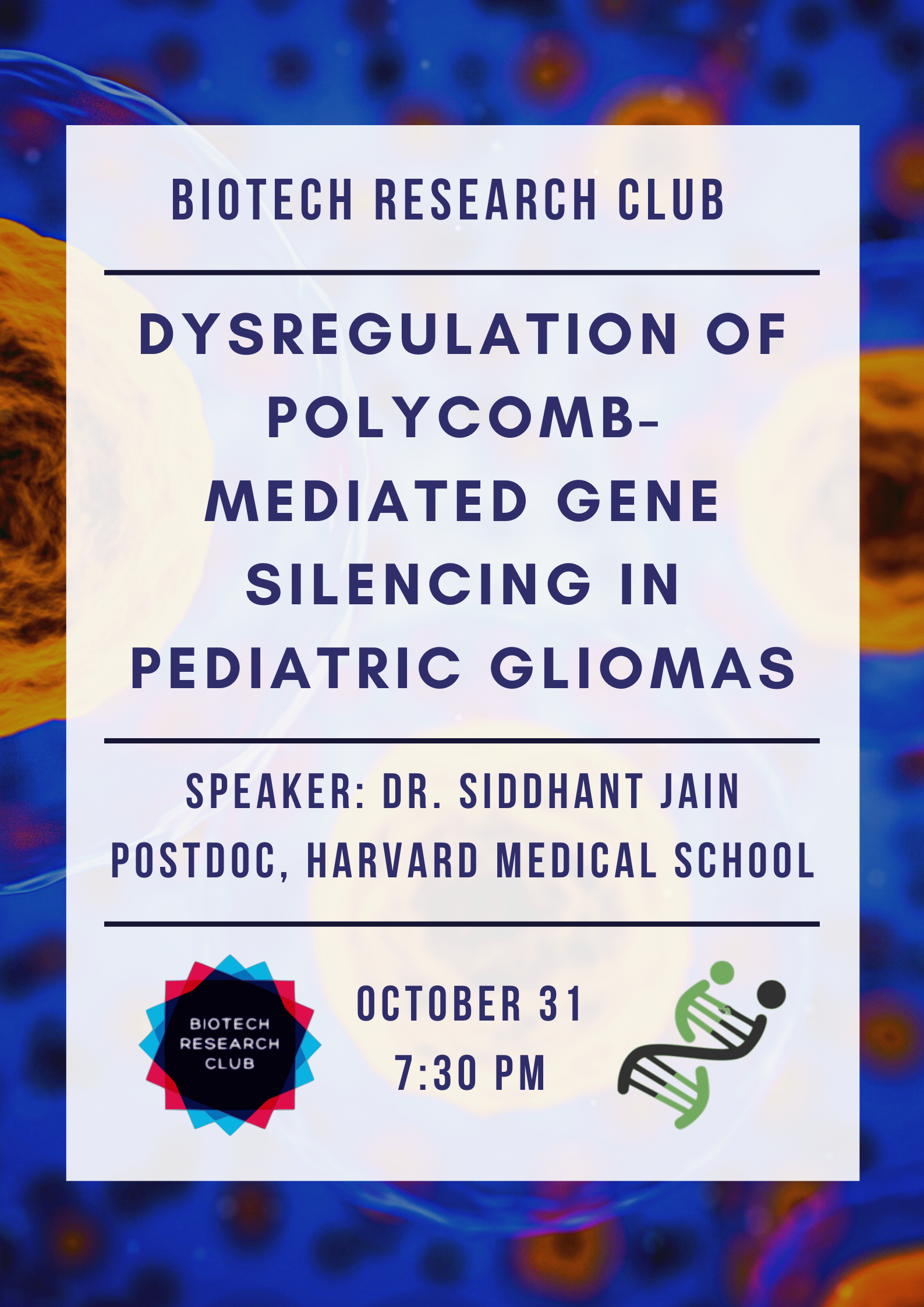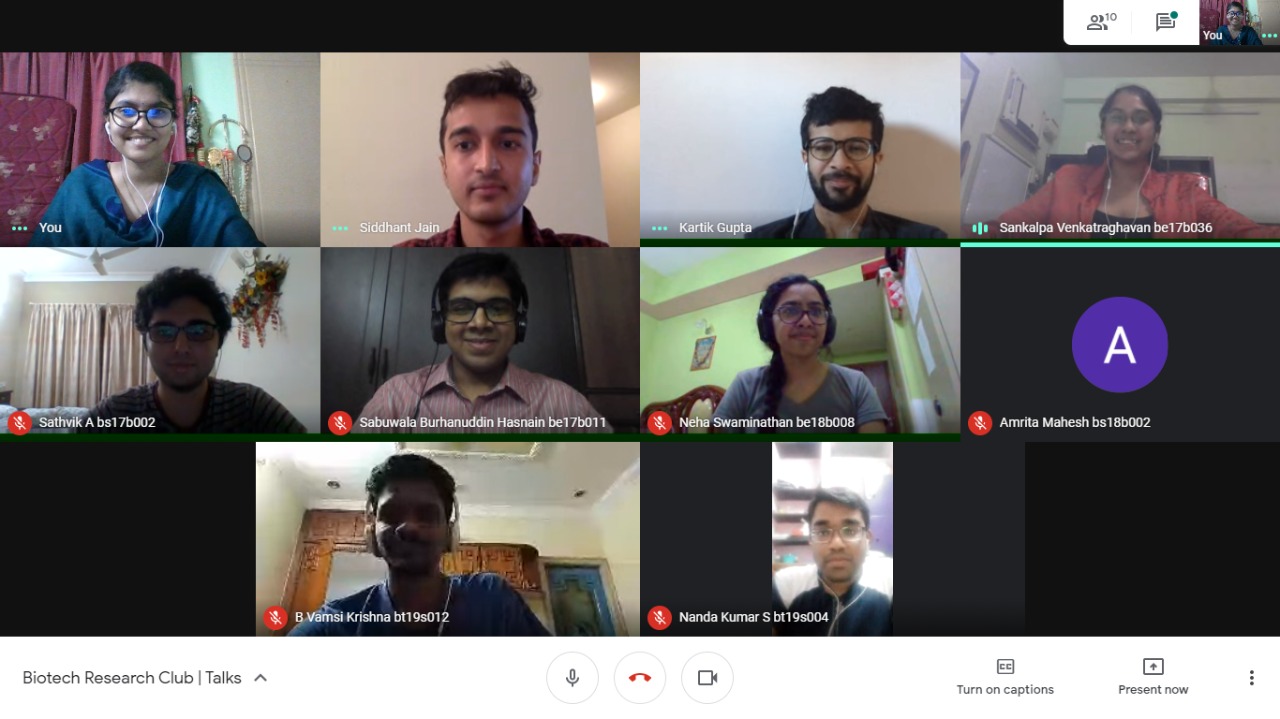Dysregulation of Polycomb-mediated gene silencing in pediatric gliomas

Abstract
An aberrant transcriptional profile is a hallmark of several cancers. Chemical modifications of DNA and histones, modulate chromatin structure and regulate transcription. Consequently, enzymes that catalyze addition or removal of these chemical modifications are frequently mutated in cancers. Recent studies have identified recurrent histone H3K27M mutations or aberrant expression of EZHIP in Diffuse Midline Gliomas and a subtype of ependymomas. In my doctoral studies, we characterized the biochemical function of these oncoproteins as competitive inhibitors of a chromatin-modifying enzyme – Polycomb Repressive Complex 2 (PRC2). I will discuss the molecular function of PRC2 and the mechanism by which these oncogenes drive highly aggressive pediatric gliomas.
Biography of the speaker
Siddhant Jain recently obtained his PhD from the Department of Biomolecular Chemistry at University of Wisconsin-Madison. He completed his B.Tech. in Biotechnology from IIT Roorkee. He is interested in understanding the enzymes that alter chromatin structure and regulate gene expression in eukaryotes. In his doctoral work in Dr. Peter Lewis’ lab, he discovered the biochemical function of a novel oncogene, EZHIP. He is off to a postdoctoral position with Dr. Cigall Kadoch at Harvard Medical School.
General discussion session for students to interact with the speaker
